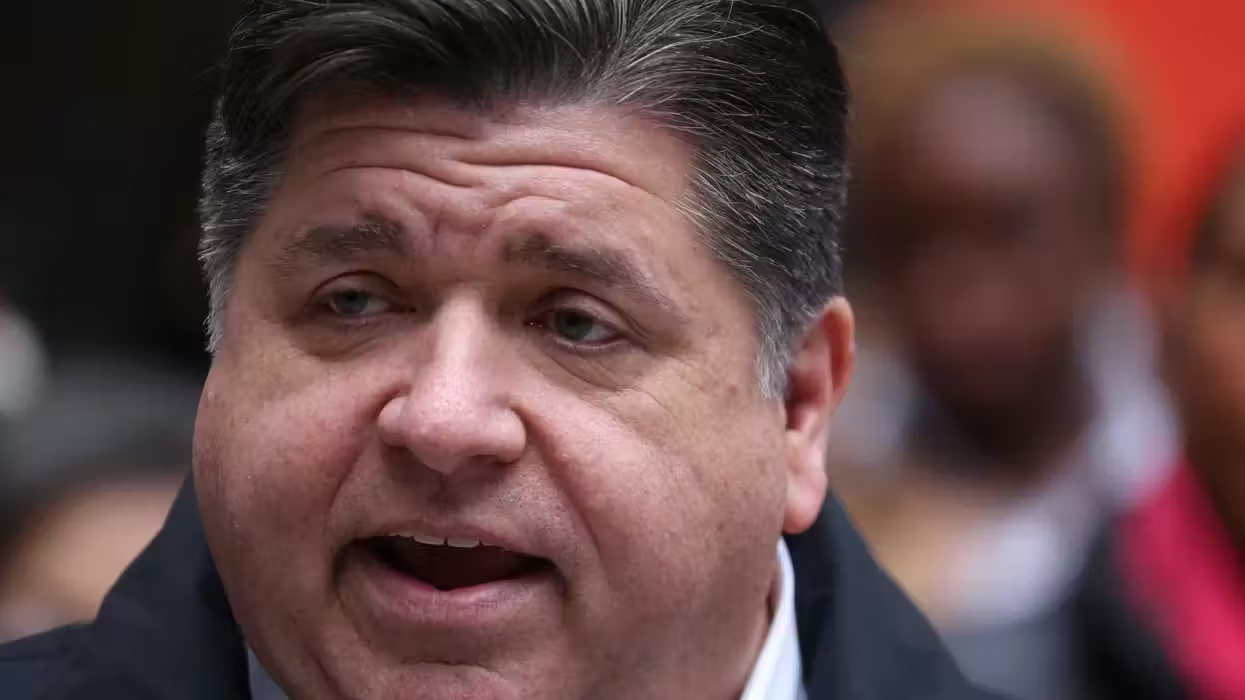
© 2025 Blaze Media LLC. All rights reserved.
"Last-resort facility."
Cyprus’ parliament may have voted to reject the terms of a $13 billion bailout deal that included a levy on all depositors, but it looks like New Zealand may be eying a similar depositor’s tax.
“The National Government are pushing a Cyprus-style solution to bank failure in New Zealand which will see small depositors lose some of their savings to fund big bank bailouts,” the country’s Green Party said in statement released Tuesday.
At the heart of the Green Party's complaint is New Zealand Finance Minister Bill English's support for the Open Bank Resolution (OBR), a Reserve Bank policy “that in extreme cases like insolvency would see a bank's losses shouldered in part by its shareholders and creditors - including everyday depositors,” The New Zealand Herald Explains.
The plan has been in development since 2011.
 New Zealand Minister of Finance Bill English holds a copy of the budget during a visit to Printlink to oversee the printing of the Budget at Petone on May 19, 2010 in Wellington, New Zealand.( Marty Melville/Getty Images AsiaPac).
New Zealand Minister of Finance Bill English holds a copy of the budget during a visit to Printlink to oversee the printing of the Budget at Petone on May 19, 2010 in Wellington, New Zealand.( Marty Melville/Getty Images AsiaPac).
"Bill English is proposing a Cyprus-style solution for managing bank failure here in New Zealand," said Green Party Co-leader Russel Norman. “The scheme will put all bank depositors on the hook for bailing out their bank.”
"Depositors will overnight have their savings shaved by the amount needed to keep the bank afloat,” he adds. "While the details are still to be finalized, nearly all depositors will see their savings reduced by the same proportions.”
"If [Bill English] insists on pushing through this unfair scheme, small depositors can be protected ahead of time with a notified savings threshold below which their savings will be safe from any interference."
Here’s a consultation paper explaining the details of the OBR policy:
Norman also notes that none of the other countries that make up the Convention on the Organization for Economic Co-operation and Development have signed on to anything like the OBR.
“Open Bank Resolution is unprecedented in the world. Most OECD countries run deposit insurance schemes which protect people’s deposits up to a maximum ranging from $100,000 – $250,000,” Norman said. “OBR is not in line with Australia, which protects bank deposits up to $250,000.”
“A deposit insurance scheme is a much simpler, well-tested alternative to Open Bank Resolution. It rewards safe banks with lower premiums and limits the cost to taxpayers of a bank failure.
“Deposit insurance will, however, require the Reserve Bank to oversee and regulate our banks more closely – a measure which is ultimately the best protection against bank failure,” he added.
 New Zealand's Prime Minister John Key. (Getty Images).
New Zealand's Prime Minister John Key. (Getty Images).
Prime Minister John Key said the OBR policy was a "last-resort facility," according to the Herald, and that it was unlikely to be used.
"The basic principle is, what would you do in the event of a catastrophe, how would you recapitalize the bank and it's reasonable logic to say that is one way through that,” he said. "This is really in the event a bank was in such a terrible mess that it fell over and had to start again.”
--
Follow Becket Adams (@BecketAdams) on Twitter
Featured image Flickr.
Want to leave a tip?
We answer to you. Help keep our content free of advertisers and big tech censorship by leaving a tip today.
Want to join the conversation?
Already a subscriber?
more stories
Sign up for the Blaze newsletter
By signing up, you agree to our Privacy Policy and Terms of Use, and agree to receive content that may sometimes include advertisements. You may opt out at any time.
Related Content
© 2025 Blaze Media LLC. All rights reserved.
Get the stories that matter most delivered directly to your inbox.
By signing up, you agree to our Privacy Policy and Terms of Use, and agree to receive content that may sometimes include advertisements. You may opt out at any time.






